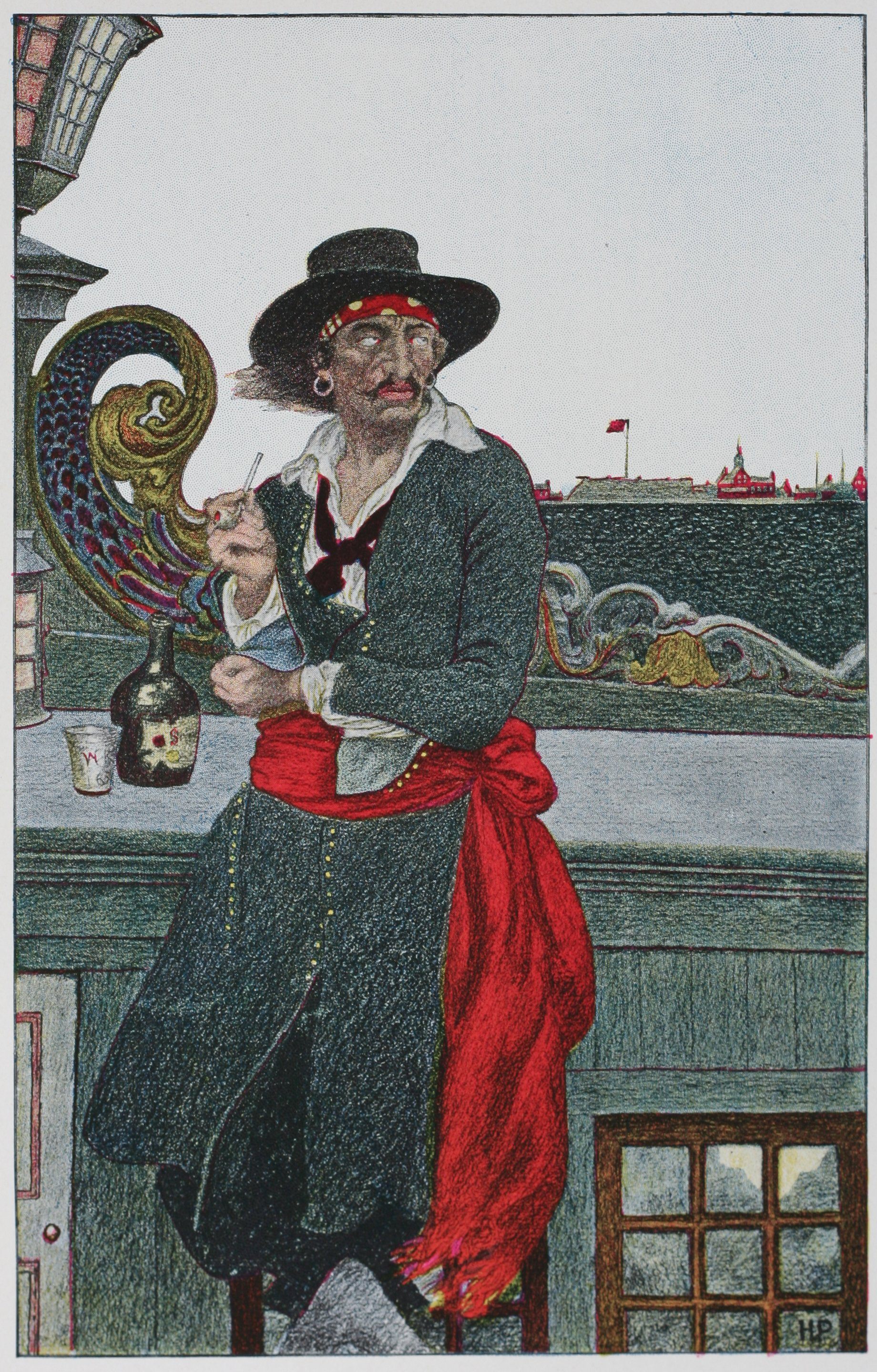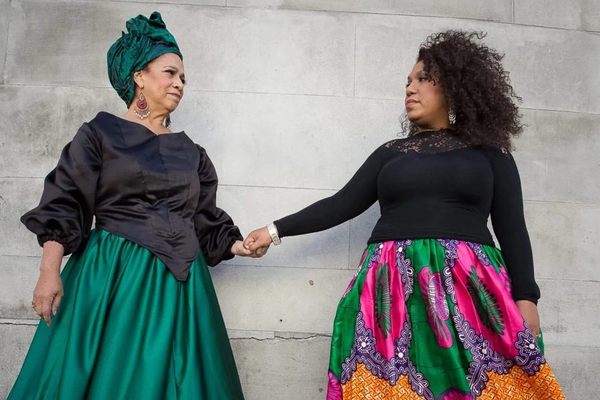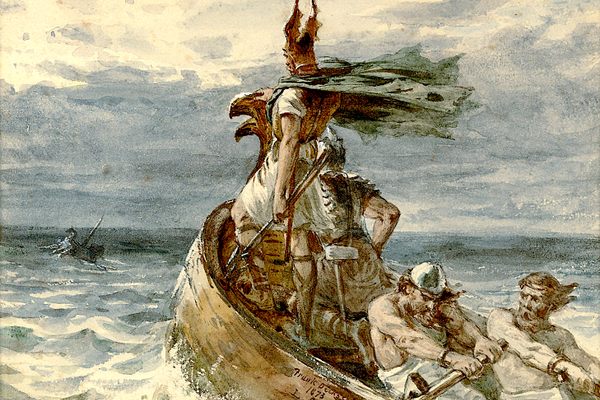Why Do Pirates Wear Earrings?
Yar! Pirates and ear jewelry have a legendary history.

Can that earring pay for his funeral? (Photo: David Goehring/CC BY 2.0)
Avast! Can any one of you scurvy dogs tell me if this earring matches this bandana? While pirates have a reputation for crime and cruelty, they are also known to be flamboyant dressers, if most depictions in popular culture can be believed. And there’s one essential accessory sported by everyone from Jack Sparrow to Captain Morgan: the gold hoop earring.
When exactly men of the sea began to put rings in their ears is anyone’s guess, but there are a handful of legends that claim to explain the fashion. The most popular myth behind the jewelry trend is that sailors would wear gold and silver earrings so that no matter where they died, they would be adorned with a way to pay for their burial. Since gold and silver were accepted forms of payment just about everywhere in the world, having a hunk of it stuck in your ear where it won’t wash away at sea was a pretty solid insurance policy.

(Photo: Howard Pyle/Public Domain)
There does seem to be some truth to this myth, says pirate historian Gail Selinger. “If you were a pirate or a thief, you were never buried. But if you’re on land and you die, then you have the money for your own burial, “ she says of the earrings. And it wasn’t just earrings that pirates wore to show off their wealth. During the golden age of piracy, pirates were known to drill holes in coins and wear them like necklaces and bracelets. “They’d wear it on their wrist, or around their neck, so that no one could steal their purse. [Archeologists] found quite a few of those [pieces of money jewelry]. So it’s not just a myth,” says Selinger. How widespread the practice was, however, is unknown.
In addition to their possible role as a down payment on a burial, earrings and jewelry were objects of rebellion. During the height of piracy in the 17th and 18th centuries, much of Europe, and especially England, had a number of sumptuary laws in place that regulated what the common people could wear and how they could live. “It was a legal way for the ruling class to separate themselves from commoners, by regulating what they wore, what they could drink, where they could live,” says Selinger.
The stifling laws prescribed things down to what colors people could wear, what genders could sport jewelry—men weren’t allowed—and where they could show off the approved things they could afford. Those who refused to obey these laws could face jail time or heavy monetary fines. Unsurprisingly, this culture of control didn’t really gel with the freewheeling lives of pirates. “Pirates basically gave [these laws] a, ‘to hell with you!’ The mindset was, ‘I no longer allow you to tell me what I can and cannot do,’” says Selinger.

(Photo: Howard Pyle/Public Domain)
According to Selinger, the flamboyant dress that came to be associated with historic pirates was a direct response to these sumptuary laws. “Especially going into town, they would wear clothes that they had stolen or purchased in the town, and then wear them, essentially saying, ‘Here I am, what’re you gonna do about it?’ So, the earrings represented [flouting] these laws.”
However, without a great deal of concrete evidence of what pirates actually wore, and the thinking behind their outfits, not everyone is convinced that pirates’ iconic earrings were ever really a thing. “Pirates didn’t really wear earrings at all—or bandanas,” says Angus Konstam, author of Pirate: The Golden Age. “Both were the invention of the late 19th-century American artist Howard Pyle. When he was asked to depict pirates for children’s books, he based them on drawings he’d made of Spanish peasants and bandits. So, his pirates wore sashes around their waists, headscarves… and earrings.” As Konstam points out, Pyle is often credited with popularizing what is today considered stereotypical pirate dress, and our continued depiction of pirates wearing earrings is likely thanks to his work.
Whether it’s a myth based on some truth, or a truth surrounded by myth, swashbuckling seafarer and their earrings are now inextricably linked. Even hundreds of years later, you can’t separate a pirate from their treasures.







Follow us on Twitter to get the latest on the world's hidden wonders.
Like us on Facebook to get the latest on the world's hidden wonders.
Follow us on Twitter Like us on Facebook